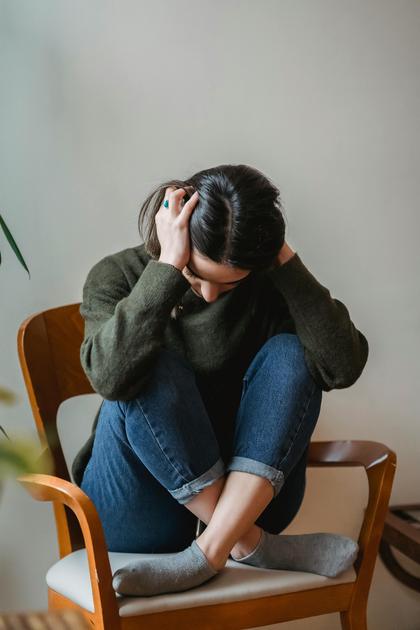Anxiety and Sleep Hygiene: Unlock Better Rest for Women Over 30
Are you a woman over 30 struggling with anxiety and sleep issues? You’re not alone. Many women face these challenges, leading to fatigue, insomnia, and feelings of overwhelm. Understanding sleep hygiene and its importance is crucial for improving your rest and overall well-being. In this article, we will explore effective strategies tailored just for you, helping you to find the tranquility and restorative sleep you deserve.
Understanding Anxiety and Its Impact on Sleep
Anxiety often feels like it has a life of its own, creeping into our minds at the most unexpected times. For women over 30, anxiety can become a constant presence that disrupts not just our days but also our nights. With the heartbeat of life speeding up — juggling careers, relationships, and personal goals — it’s no wonder many of us find our minds racing when it’s time to sleep.
When anxiety takes hold, it can lead to sleepless nights, tossing and turning, as thoughts swirl like leaves in a storm. Research has shown that anxiety affects not just how long it takes to fall asleep, but also the quality of rest we get. This can result in waking up exhausted, feeling as if we haven’t rested at all.
Recognizing the connection between anxiety and sleep is the first step towards reclaiming those precious hours of rest. By understanding how anxiety manifests, we can begin to unravel its tight grip and pave the way for restorative sleep.
What is Sleep Hygiene and Why It Matters
Sleep hygiene refers to a collection of practices and habits that are essential to having good nighttime sleep quality and daytime alertness. In simpler terms, it’s a routine that prepares your body and mind for rest. Why is this particularly important for women over 30? As we age, our bodies undergo various changes — from hormonal fluctuations to increased responsibilities that can erode our sleep quality.
Good sleep hygiene is about creating a sleep-friendly environment and establishing habits that encourage rest. This may involve everything from keeping a consistent sleep schedule to lighting your bedroom with soft, calming colors. By prioritizing sleep hygiene, women can create a restorative sanctuary that nurtures their physical and mental well-being.
Common Sleep Issues Women Face Over 30
As women age, they may encounter specific sleep issues that exacerbate their anxiety. Some common concerns include:
- Insomnia: Difficulty falling or staying asleep is a common issue. This can stem from stress, hormonal changes, or lifestyle factors.
- Nightmares: Increased anxiety can lead to disruptive dreams, leaving you feeling anxious even upon waking.
- Sleep Apnea: A condition that causes interruptions in breathing during sleep, which is more common as women age.
- Restless Leg Syndrome: An uncomfortable urge to move the legs can prevent falling asleep.
- Frequent Nighttime Awakenings: Waking up multiple times can disrupt deep sleep, leading to fatigue during the day.
Understanding these issues can empower women to seek appropriate solutions, knowing that they’re not alone in this struggle.
Tips for Creating a Sleep-Conducive Environment
Creating a sleep-friendly environment can play a pivotal role in enhancing the quality of your sleep. Here are some practical tips:
- Declutter Your Bedroom: A tidy space leads to a clear mind. Remove distractions like work materials and electronics.
- Optimize Temperature: Keep your bedroom cool, around 60-67°F (15-19°C) is ideal for most people.
- Create a Relaxing Atmosphere: Use soft lighting, calming scents like lavender, or even sound machines to help make your space serene.
- Invest in Comfort: Choose a mattress and pillows that support your sleeping style and comfort preferences.
- Limit Noise: Consider earplugs or white noise machines to drown out disruptive sounds.
The Role of Diet in Sleep and Anxiety Management
What we eat can have profound effects on our sleep and anxiety levels. Here’s how to be mindful about your meals:
- Avoid Stimulants: Reduce caffeine and nicotine intake, especially later in the day. They can keep your mind buzzing when you want to rest.
- Incorporate Sleep-Promoting Foods: Foods rich in magnesium, like spinach and almonds, or tryptophan, like turkey and bananas, can promote better sleep.
- Stay Hydrated: Drink enough water throughout the day, but limit fluids before bedtime to avoid nighttime trips to the bathroom.
- Create a Consistent Meal Schedule: Eating at regular intervals can help stabilize your energy levels and maintain a balanced mood.
Adjusting your diet is yet another step towards reclaiming restful nights.
Mindfulness Practices to Enhance Sleep Quality
Incorporating mindfulness into your daily routine can significantly enhance your sleep quality. Here are some practices to consider:
- Meditation: Spend a few minutes each evening meditating to clear your mind. Apps like Headspace or Calm can guide you through the process.
- Deep Breathing Exercises: Take deep breaths in through your nose and out through your mouth, focusing on releasing tension with each exhale.
- Gentle Yoga: Engage in gentle stretches or yoga sessions before bed to relieve tension and promote relaxation.
- Gratitude Journaling: Reflect on the positive moments of your day. This practice can shift your focus from worries to gratitude, making it easier to fall asleep.
Balancing Hormones for Better Sleep
For women over 30, hormonal changes can disrupt our sleep patterns and heighten anxiety. Here are some strategies to help balance hormones naturally:
- Exercise Regularly: Aim for at least 30 minutes of moderate exercise five days a week. It can help regulate hormones and improve sleep.
- Manage Stress: Utilize stress management techniques to keep cortisol levels in check, which can affect sleep.
- Consider Herbal Supplements: Herbs like valerian root or ashwagandha have calming properties; consult with a healthcare provider before trying new supplements.
- Stay Informed: Understanding your hormonal fluctuations can empower you to take control; consider talking to a health professional about your symptoms.
Establishing a Relaxing Evening Routine
Creating an evening routine signals to your body that it’s time to wind down. Here are a few suggestions:
- Set a Sleep Schedule: Go to bed and wake up at the same time every day, even on weekends to regulate your internal clock.
- Wind Down: Engage in calming activities such as reading or listening to soft music for at least 30 minutes before sleep.
- Limit Screen Time: Steer clear of screens for at least an hour before bed. The blue light emitted can interfere with melatonin production.
- Practice Self-Care: Take a warm bath, use skincare products, or light candles to nurture yourself before bed.
The Power of Journaling Before Bed
Writing down your thoughts before bed can serve as a powerful tool for managing anxiety. Here’s how journaling can help:
- Clear Your Mind: Writing down worries can help you release them, preventing them from circulating in your mind as you try to sleep.
- Reflect on Positive Moments: Journaling about what you’re grateful for can uplift your mood and invite positive energy into your thoughts.
- Track Sleep Patterns: Note down how you slept and any disturbing thoughts — this can help you identify triggers that affect your rest.
- Create Goals: Writing down your goals can give you a sense of purpose and calm, reducing anxiety about the unknown.
How to Seek Help and Resources for Better Sleep
If anxiety and sleep issues persist, seeking help and utilizing resources is vital. Here’s how to pursue further support:
- Consult a Professional: Consider reaching out to a therapist or psychologist who specializes in anxiety management.
- Explore Sleep Clinics: Clinics can provide assessments and treatments tailored to sleep disorders.
- Educate Yourself: Books, podcasts, and reputable websites can offer insights and strategies for managing sleep and anxiety.
- Community Support: Joining local or online support groups can provide a safe space to share experiences and coping strategies.
Remember, better rest is within your reach. By following these simple steps and making small changes, many women over 30 have already started to transform their sleep and manage their anxiety more effectively. You too can discover this solution and unlock the restful nights you deserve!













